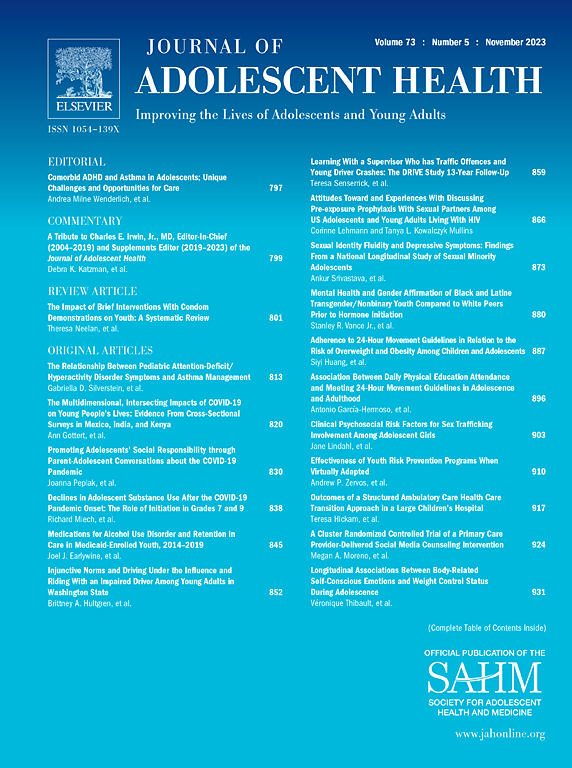Prevalence and Factors Related to Post-traumatic Stress Disorder and Depression Symptoms Among Children and Adolescents Survivors and Orphans of Ebola Virus Disease in Democratic Republic of the Congo Eastern Regions During the COVID-19 Pandemic
Abstract
Purpose
Although previous studies have shown a high prevalence of mental health problems among adult Ebola virus disease survivors, no studies have yet been conducted on mental health problems among children and adolescents in affected regions. Consequently, the current study aimed to examine the prevalence and factors associated with depression and post-traumatic stress disorder (PTSD) among children and adolescent survivors and orphans by utilizing a cross-sectional survey following the 2018–2020 epidemic in Eastern Democratic Republic of the Congo.
Methods
A total of 146 survivors (mean age = 13.62, standard deviation [SD] = 2.50, 49.32% female), 233 orphans (mean age = 13.18, SD = 2.96, 53.32% female), and 34 orphan-survivor participants (mean age = 13.39, SD = 2.87, 44.12% female) were recruited. Participants completed measures assessing depression and PTSD symptoms, traumatic experiences, and stigma related to Ebola and COVID-19.
Results
The prevalence of depression and PTSD symptoms was 87.32% and 44.42%, respectively. Results showed significant differences in depression and PTSD symptoms between orphan-survivors (100% and 97.06%), survivors (90.21% and 75.86%), and orphans (83.48% and 16.52%; χ2(2) = 9.02; p = .011 and χ2(2) = 168.85; p < .001). Experience of traumatic events, Ebola stigmatization, and COVID-19 stigmatization positively predicted depression and PTSD symptoms. The regression models explained 61%–72% of the variance of depression and PTSD.
Discussion
The results reveal that the Ebola virus disease and its associated grief severely jeopardize the mental health of children and adolescents in affected regions. Despite the relative paucity of resources, intervention programs may be helpful to minimize associated stigma and promote psychological support.
Keywords
Members and SHERPA Teams

Cécile Rousseau
Professor, Division of Social and Transcultural Psychiatry, Université McGill

